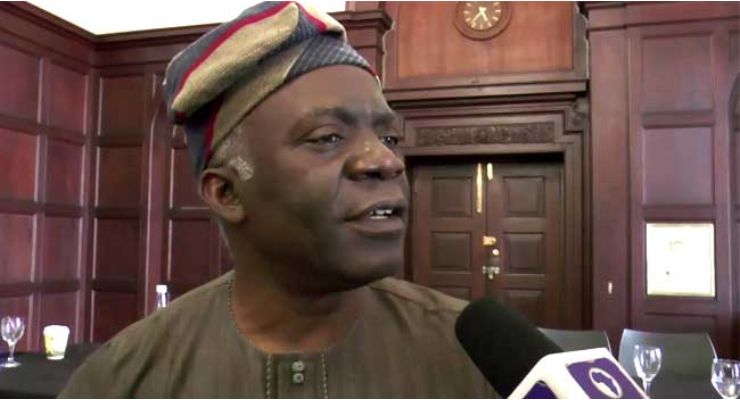Falana Sues EFCC, Police, AGF, Others Over Media Parade Of Suspects
Human rights activist, Mr. Femi Falana, SAN, has approached a Federal High Court in Abuja, asking it to declare that pre-trial media parade of criminal suspects by security and anti-corruption agencies in the country as illegal and unconstitutional.
The court is yet to fix a date for hearing of the matter.
Cited as Respondents in the suit were the Inspector General of Police, the Economic and Financial Crimes Commission, the Nigerian Customs Service, the Nigerian Security and Civil Defence Corps, the Nigerian Navy, the Independent Corrupt Practices and other related offences Commission, as well as the Attorney General of the Federation.
Specifically, Falana is seeking, “A declaration that the pre-trial media parade of criminal suspects by the Respondents is illegal, null and void as it violates Section 34 of the Constitution of the Federal Republic of Nigeria, 1999 as amended and Article 5 of the African Charter on Human and Peoples’ Rights (Ratification and Enforcement) Act (CAP A9) Laws of the Federation of Nigeria, 2004. “A declaration that the pre-trial media parade of criminal suspects is illegal, null and void as it violates Section 36(5) of the Constitution of the Federal Republic of Nigeria, 1999 as Amended and Article 7 of the African Charter on Human and Peoples Rights (Ratification and Enforcement) Act, (Cap A9) Laws of the Federation of Nigeria, 2004. “A declaration that pre-trial media parade of criminal suspects by the Respondents has been prohibited by Section 2(xi) of the Anti-Torture Act, 2017.
Likewise, “An order of perpetual injunction restraining the Respondents whether by themselves, their agents, privies and servants from further exposing criminal suspects to media parade in any manner whatsoever and howsoever.”
Canvassing reasons why the court should stop media parade of suspects, the Plaintiff argued that by the provision of section 36(5) of the 1999 Constitution, as amended, every person who is charged with a criminal offence shall be presumed to be innocent until proved guilty.
He argued that: “Article 7(1) (b) of the African Charter on Human and Peoples’ Rights African Charter on Human and Peoples’ Rights (Ratification and Enforcement) Act (Cap A9) Laws of the Federation, 2004also guarantees this presumption when it states as follows: 1. Every individual shall have the right to have his cause heard. This comprises: (a) the right to an appeal to competent national organs against acts of violating his fundamental rights as recognised and guaranteed by conventions, laws, regulations and customs in force; (b) the right to be presumed innocent until proved guilty by a competent court or tribunal; (c) the right to defence, including the right to be defended by counsel of his choice; (d) the right to be tried within a reasonable time by an impartial court or tribunal.”
“Section 2 (1) of the Anti-Torture Act, 2017provides ”Torture is deemed committed when; an act by which pain or whether physical, or mental, is inflicted on a person to – (a) obtain information or a confession from him”.
“Section 2 (2) (b) of the Anti-Torture Act further provides “mental or psychological torture, which · is understood as referring to such cruel, inhuman · or degrading treatment calculated to affect or confuse the mind or undermine a person’s dignity and morale,”
“The various security and anti-graft agencies are in the habit of exposing persons accused of committing criminal offences to media trial, media parade even before criminal charges are filed against them in Courts of law against thereby prejudging them and breaching their fundamental rights to presumption of innocence and against torture as enshrined in the Constitution of Nigeria, 1999 and the Anti- Torture Act, 2017 respectively.”




